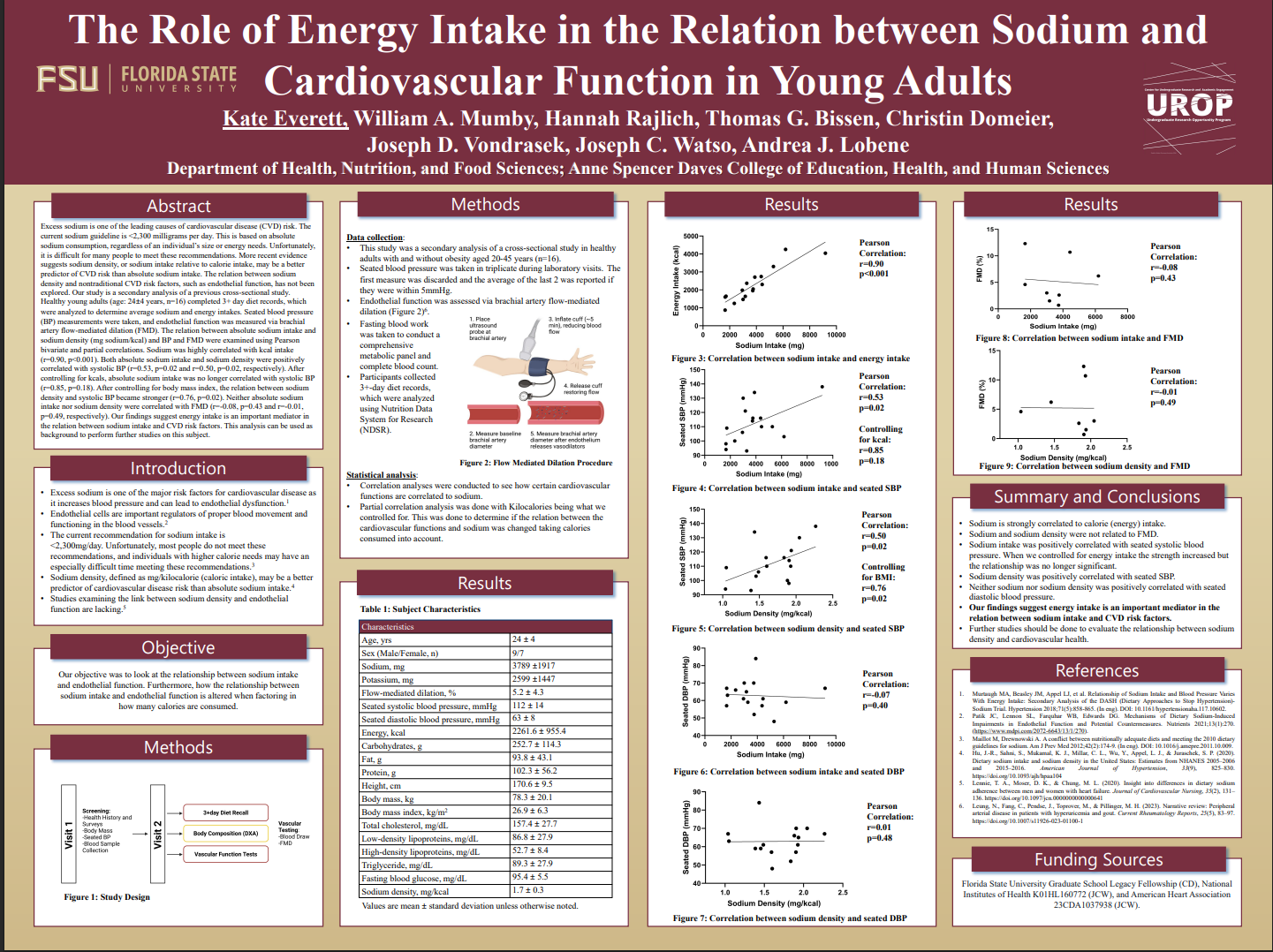Research Symposium
25th annual Undergraduate Research Symposium, April 1, 2025
Katelyn Everett Poster Session 3: 1:45 pm - 2:45 pm/ Poster #149

BIO
I am from a small beach town on the East coast of Florida. I became interested in Dietetics because there are so many people close to me that are affected by nutrition based diseases. I found a passion for nutrition and want to use it to help those around me as well as others. Research is the basis for nutrition and food regulations and policies. I wanted to be a part of that process during my undergrad. Outside of research, I volunteer with several different nutrition organizations in order to figure out what specifically I want to do in my chosen field post-graduation.
The Role of Energy Intake in the Relation between Sodium and Cardiovascular Function in Young Adults
Authors: Katelyn Everett, Andrea LobeneStudent Major: Dietetics
Mentor: Andrea Lobene
Mentor's Department: Department of Health, Nutrition, and Food Sciences Mentor's College: Anne Spencer Daves College of Education, Health, and Human Sciences Co-Presenters:
Abstract
Excess sodium is one of the leading causes of cardiovascular disease (CVD) risk. The current sodium guideline is <2,300 milligrams per day. This is based on absolute sodium consumption, regardless of an individual’s size or energy needs. More recent evidence suggests sodium density, or sodium intake relative to calorie intake, may be a better predictor of CVD risk. The relation between sodium density and nontraditional CVD risk factors has not been explored. Our study is a secondary analysis of a previous cross-sectional study. Healthy young adults (age: 24±4 years, n=16) completed 3+ day diet records, which were analyzed to determine average sodium and energy intakes. Seated blood pressure (BP) measurements were taken, and endothelial function was measured via brachial artery flow-mediated dilation (FMD). The relation between absolute sodium intake and sodium density (mg sodium/kcal) and BP and FMD were examined using Pearson bivariate and partial correlations. Sodium was highly correlated with kcal intake (r=0.90, p<0.001). Both absolute sodium intake and sodium density were positively correlated with systolic BP (r=0.53, p=0.02 and r=0.50, p=0.02, respectively). After controlling for kcals, absolute sodium intake was no longer correlated with systolic BP (r=0.85, p=0.18). After controlling for body mass index, the relation between sodium density and systolic BP became stronger (r=0.76, p=0.02). Neither absolute sodium intake nor sodium density were correlated with FMD (r=-0.08, p=0.43 and r=-0.01, p=0.49, respectively). Our findings suggest energy intake is an important mediator in the relation between sodium intake and CVD risk factors.
Keywords: sodium, heart, cardiovascular

